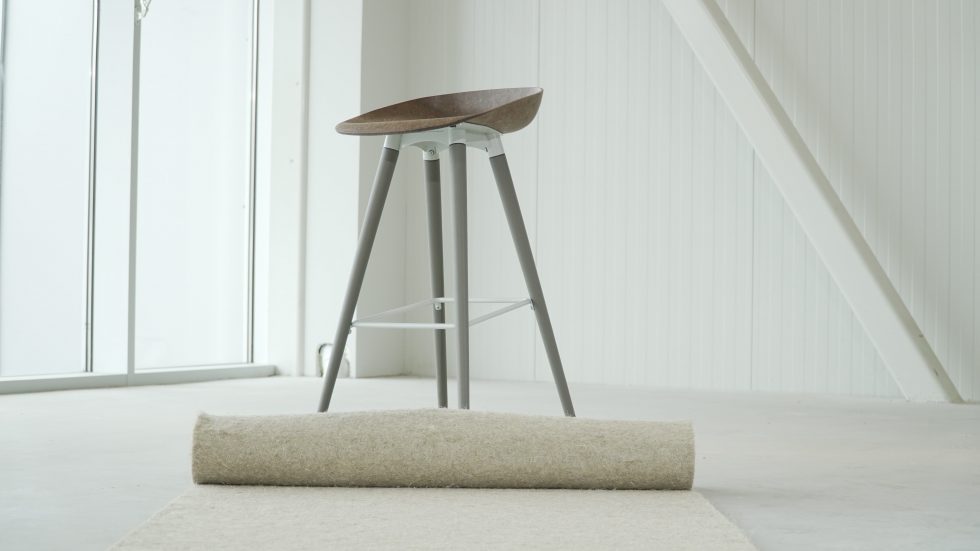Want to know more about this article?
VepaDrentea presents CO2 negative chair
Positive news! Furniture manufacturer VepaDrentea from Hoogeveen has launched a collection of chairs with highly innovative seat shells. They are made from renewable, recyclable, and biodegradable biomaterial of hemp and resin.
World’s first biobased thermostetting resin
The biomaterial was developed by Plantics, inventor of the world’s first bio-based thermosetting resins. The ‘Hemp collection’ of chairs and bar stools is produced entirely in the Netherlands and combines bio-based seat shells and bases made of PEFC-certified wood or recyclable steel. In the design stage, easy disassembly for recycling was a leading principle. The seat shells can be ground up for re-use in new products, but are also compostable in nature.
Plantics B.V., located in Arnhem and founded in 2014, is a spin-off from the University of Amsterdam. The company developed 100% bio-based, circular and CO2 negative thermosets. This happened by accident: researchers were searching for a biofuel from biological waste material, when they created a sticky substance that turned out to be a unique resin.
Sustainable chain
This resin, together with hemp fibres, formed the basis of a new material that Plantics and VepaDrentea started working on. ‘We are extremely proud that we were able to achieve this after two years of research and are the first in the world to do so’, says Janwillem de Kam, director of VepaDrentea.
CO2 negative footprint
The advantage of hemp is that it grows without fertilizers or pesticides, requires hardly any water and is grown in the Netherlands. In addition, hemp is strong and absorbs CO2. ‘The resin is made from purely vegetable materials – including residual material from sugar beet – and is recyclable’, adds Plantics CEO dr. Wridzer Bakker. As a result, the production of these chairs has a negative CO2 footprint.
The new Hemp collection is not only suitable for the office, but also at home. ‘We have not only paid attention to sustainability and practicality, but also to design, comfort and affordability’, De Kam concludes.
